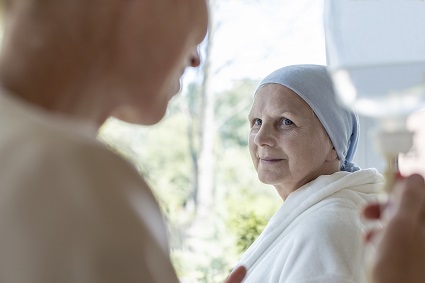
Winter 2019
Opportunities for Psychologists and Behavioral Scientists in Palliative Care
Laura Porter, PhD✉ and Katherine Ramos, PhD✉; Palliative Care SIG-in-Formation Co-Chairs

Palliative care is an approach that improves the quality of life of patients and their families facing life-threatening illness. As the population ages and palliative care gains greater acceptance, there is a growing demand for palliative care services and research to guide the provision of effective care.1 As behavioral scientists and health care providers, SBM members have much to offer the field of palliative care in both clinical and research domains.
In the clinical realm, only 11% of palliative care teams include psychologists, and the discipline has not yet developed a palliative care specialty.2 However, there is an emerging specialty in palliative psychology which is focused on assessing and treating physical, psychological, and existential distress and suffering in patients with serious and advanced illness and their family caregivers. Palliative psychology is patient-centered and grounded in a holistic and strength-based approach that aims at promoting psychological well-being for the patient and family caregivers through the transitions of care, including the death and dying process and in bereavement.3 In addition to psychological distress, treatment might focus on issues such as pain and symptom management, adjustment to illness, grief reactions, existential and spiritual angst, spiritual comfort, death anxiety, bereavement, communication difficulties, crisis management, life meaning, and post-traumatic growth.
Psychology graduate students who are interested in obtaining specialized training in palliative care can access training through pre-doctoral internships offered across the Veterans Affairs health care system. Some academic medical centers such as Duke University, Dana-Farber Cancer Institute, and University of Colorado also offer rotations in palliative care. In VA, there are also clinically-focused palliative care fellowships.
With regard to research, behavioral scientists make significant contributions in numerous areas, including (a) knowledge about patient and family psychological processes that can be leveraged for improving decisional and quality-of-life outcomes; (b) the development of patient- and caregiver- reported measures of processes and outcomes targeted by palliative care such as those measuring meaning, distress, communication, and illness understanding; (c) contributing to theory-based intervention design and evaluation of palliative care services; and (d) the design, delivery, and assessment of psychosocial interventions including cognitive behavioral therapy, acceptance and commitment therapy, motivational interviewing, life review, dignity therapy, reminiscence therapy, meaning-centered psychotherapy, and psychoeducation.
Individuals interested in specialty training opportunities in palliative care research can pursue specialty internship and advanced fellowships (e.g., in informal consultation, cross-training, and co-treatment with other disciplines). There are increasing funding resources for palliative care research, particularly through NCI and NIA (see e.g., https://grants.nih.gov/grants/guide/pa-files/PAR-19-321.html). Foundations such as the Palliative Care Research Collaborative, the National Palliative Care Research Center, and the American Cancer Society offer pilot and career development grants as well as resources for training in palliative care research.
Given the growing interest in and opportunities for psychologists and behavioral scientists in the palliative care, we have established the Palliative Care SIG-in-formation. If you would like to join, or would like more information, please e-mail the SIG-in-formation co-chairs: Laura.Porter@duke.edu or Katherine.Ramos@duke.edu.
References
- Kasl-Godley JE, King DA, Quill TE. Opportunities for psychologists in palliative care: Working with patients and families across the disease continuum. American Psychologist. 2014 May;69(4):364.
- Hoerger M, Wayser GR, Schwing G, Suzuki A, Perry LM. Impact of interdisciplinary outpatient specialty palliative care on survival and quality of life in adults with advanced cancer: A meta-analysis of randomized controlled trials. Annals of Behavioral Medicine. In press
- Strada EA. Palliative Psychology: Clinical Perspectives on an Emerging Specialty. Oxford University Press; 2017 Nov 13.